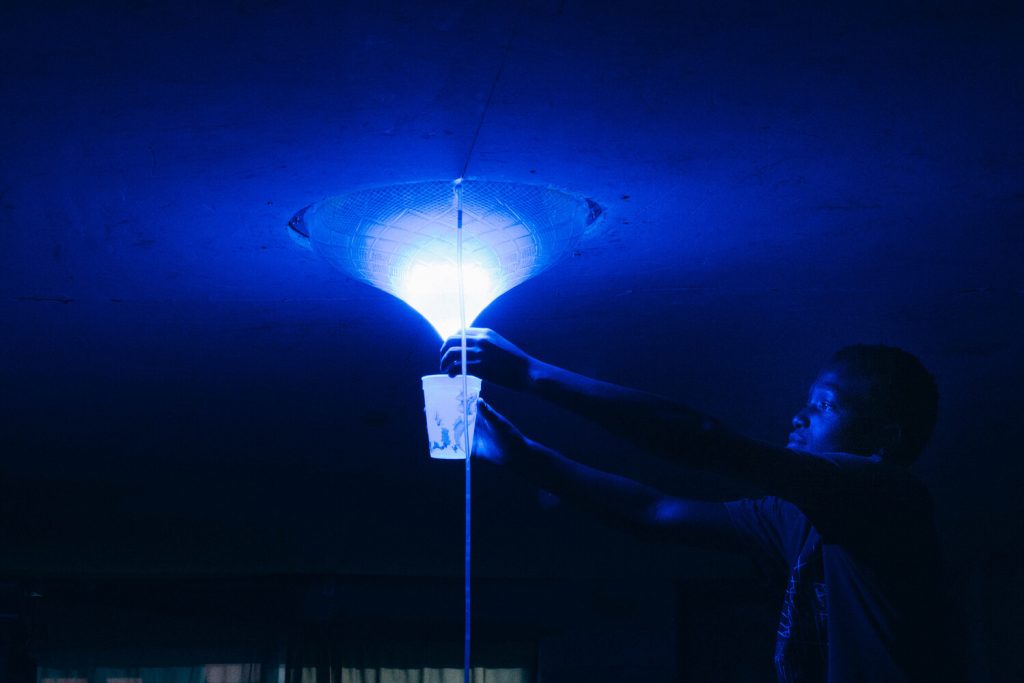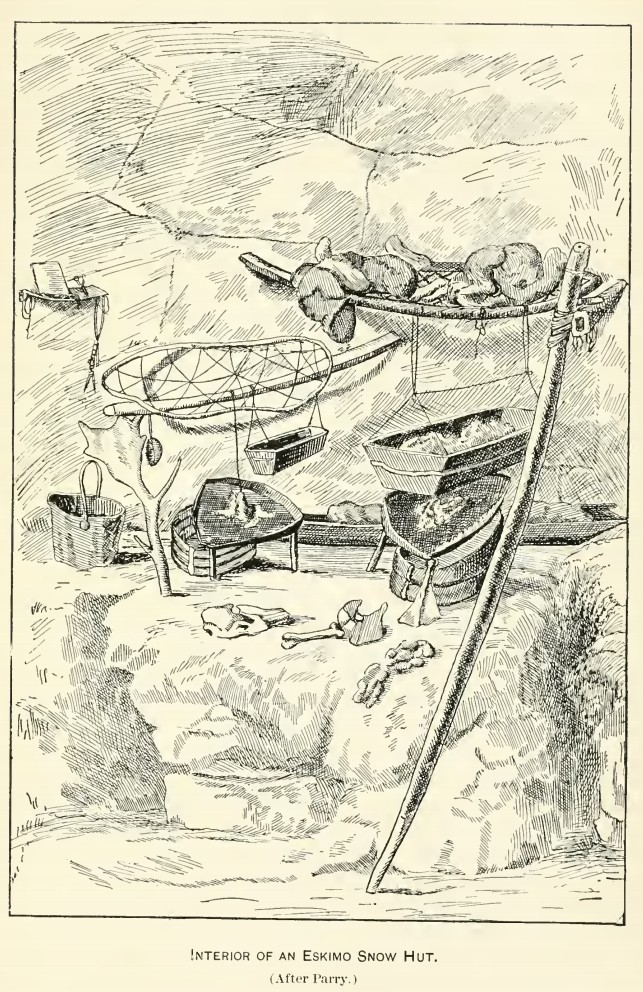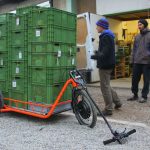- Your stuff is actually worse now. [Vox] How the cult of consumerism ushered in an era of badly made products.
- The Automation Charade. [Logic] The rise of the robots has been greatly exaggerated. Whose interests does that serve?
- How Stanford Failed the Academic Freedom Test. [Tablet] For America’s new clerisy, scientific debate is a danger to be suppressed.
- Minimal Computing. [Digital Humanities Climate Coalition] Minimal computing is a set of principles and practices that aim to reduce both environmental impact and barriers to access and engagement.
- Open hardware: From DIY trend to global transformation in access to laboratory equipment. [PLOS Biology] This Essay examines the global spread of open hardware and discusses which kinds of open-source technologies are the most beneficial in scientific environments with economic and infrastructural constraints.
- Riddle solved: Why was Roman concrete so durable? [MIT News]
- Speeding up. Prehistoric animal traction and the revolute joint. [Eva Rosenstock] The revolute joint, an innovation of the late fourth and the early third millennia BCE, brought about wheelsets and wheels for carts and wagons along with other applications such as pivoted doors, the potter’s wheel, and levers. In terms of acceleration, these innovations were as significant as the acceleration period we currently encounter that started with industrialization.
- The candle clock. [Wikipedia] While no longer used today, candle clocks provided an effective way to tell time indoors, at night, or on a cloudy day. Previously: Human alarm clocks.
- Brandalism. A revolt against the corporate control of our culture and space.
- Pickup Trucks: From Workhorse to Joyride. [Axios] In the 1980s, about half of pickup trucks were categorized as small or midsize, but by the 2010s small pickups had nearly vanished and fullsize trucks dominated.
No Tech Reader #36
Solar Desalination Skylight
“You hand pump seawater or polluted water into a bowl. Throughout the day the energy from the sun heats up this water and, instead of evaporating into the atmosphere, it gets trapped in the top section. All the fresh water will then trickle down into this bottom basin and all the impurities of the salt and polluted water stay behind. You’re going to have a left-over salt brine which is going to be a waste resource, but instead of throwing it away, this salt brine goes into the series of seawater batteries around the perimeter that can light a LED strip during the night. At night you can turn on the light and you get an energy source through the salt batteries. And during the day, this is like a skylight, bringing natural light to the interiors.”
“The power of the sun is amazing, and I was trying to copy this hydrological cycle. It can kill 99% of dangerous pathogens, remove salt brine and reduce the need of having to boil your water. I am not necessarily reinventing the wheel; solar distillers have been around for a long time, but a lot of these systems are heavy, expensive to make and with very complicated designs. I wanted to think about one which could potentially be portable and simple to construct, made out of local materials and able to Achieve a higher yield of water.”
“This new design was exactly the same but at a large scale. We created a recipe book that is a step-by-step guide on how you can create this same design using bamboo and local work. It could be flat packed into a bag and deployed very simply and quickly and then attached to a bamboo structure which allows structural rigidity but also a community shaded spot, where you can produce around 18 liters of purified water everyday.”
Read more: Low-Tech Solutions for Complex Demands: An Interview with Architect Henry Glogau, ArchDaily. Image by Henry Glogau. Hat tip to Michael.
Praising Collapse
Quoted from: Scott, James C. Against the grain: A deep history of the earliest states. Yale University Press, 2017.
Why deplore “collapse,” when the situation it depicts is most often the disaggregation of a complex, fragile, and typically oppressive state into smaller, decentralized fragments? One simple and not entirely superficial reason why collapse is deplored is that it deprives all those scholars and professionals whose mission it has been to document ancient civilizations of the raw materials they require… There are splendid and instructive documentaries on archaic Greece, Old Kingdom Egypt, and mid-third millennium Uruk, but one will search in vein for a portrayal of the obscure periods that followed them: the “Dark Age” of Greece, the “First Intermediate Period” of Egypt, and the decline of Uruk under the Akkadian Empire. Yet there is a strong case to make that such “vacant” periods represented a bolt for freedom by many state subjects and an improvement in human welfare. [Read more…]
The Lamp of the Eskimo (1898)
Quoted from: Hough, Walter. The lamp of the Eskimo. US Government Printing Office, 1898.
Though the Eskimo live at a temperature of zero Fahrenheit, travelers have noticed their idiosyncrasy with regard to cold. The clothing is designedly left open at intervals around the waist and the bare skin exposed to the cold air. As a rule the Eskimo strip when in the house and sleep naked. Another indication of their feverishness is the consumption of great (quantities of ice-cold water. No explorer has failed to notice the Eskimo lamp, around which the whole domestic life of this people seems to focus. Far more remarkable than being the unique possessors of the lamp in the Western Hemisphere, the Eskimo presents the spectacle of a people depending for their very existence upon this household belonging. Indeed, it is a startling conclusion that the lamp has determined the occupancy of an otherwise uninhabitable region by the Eskimo, or, in other words, the distribution of a race. [Read more…]
No Tech Reader #35
- A hundred and nineteen things a punkist should know. [http://www.punk.ist]
- Firewood will save the West. [Unherd] “Our dysfunctional society must return to the hearth.”
- ‘Luddite’ Teens Don’t Want Your Likes. [NYT] “When the only thing better than a flip phone is no phone at all.”
- Papers and patents are becoming less disruptive over time. [Nature] “We find that papers and patents are increasingly less likely to break with the past in ways that push science and technology in new directions. Overall, our results suggest that slowing rates of disruption may reflect a fundamental shift in the nature of science and technology.”
- Assessing the effectiveness of energy efficiency measures in the residential sector gas consumption through dynamic treatment effects: Evidence from England and Wales. [Energy Economics] “This paper disentangles the long-lasting effects of energy efficiency technical improvements in UK residential buildings. The installation of energy efficiency measures is associated with short-term reductions in residential gas consumption. Energy savings disappear between two and four years after retrofitting by loft insulation and cavity wall insulation, respectively. The disappearance of energy savings in the longer run could be explained by the energy performance gap, the rebound effect and/or by concurrent residential construction projects and renovations associated with increases in energy consumption. Notably, for households in deprived areas, the installation of these efficiency measures does not deliver energy savings.”
- Mapping Four Decades of Appropriate Technology Research: A Bibliometric Analysis from 1973 to 2021. [Sains Humanika] “The purpose of the study is to examine the publication trends, collaborative structures, and central themes in appropriate technology studies.”
- Life in the Slow Lane. [Longreads] “Cooking all day while the cook is away. How the slow cooker changed the world.”
- Can a Robot Shoot an Olympic Recurve Bow? A preliminary study. [National Taiwan Normal University]
- Amnesty, Yes—And Here is the Price. [Charles Eisenstein] “The invisible workings of the Covid machine must be laid bare if we are to prevent something similar from happening again.”
- Reduce, re-use, re-ride: Bike waste and moving towards a circular economy for sporting goods. [International Review for the Sociology of Sport] “This study focuses on the bike and its role in global waste accumulation through various forms of planned obsolescence.”
- Civilian-Based Defense: A Post-Military Weapons System. [International Center on Nonviolent Conflict]
- Millionaire spending incompatible with 1.5 °C ambitions. [Cleaner Production Letters]
- Radical online collections and archives. [New Historical Express]
Machine Environmentalism
“The phrase ‘eco fascist’ is a label which is increasingly being applied to the wrong kind of environmentalist: those who offer up a vision of humanity and nature that involves roots, traditions, smallness, simplicity, a return to previous lifeways, or any other kind of challenge to Machine modernity. This in turn is contrasted with the right kind of green: that which is modern, global, progressive and – most importantly of all – friendly to the onward march of the technological society.”
Read more: The Fourth Revolution, Paul Kingsnorth. Via Wrath of Gnon.







